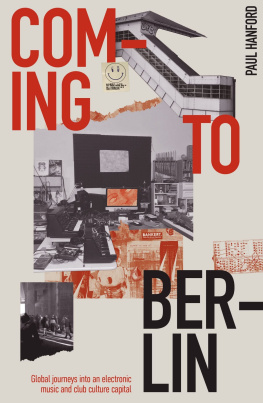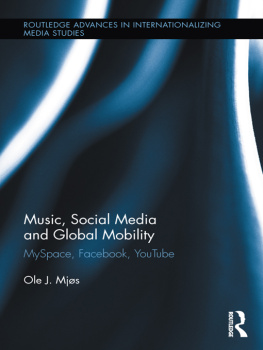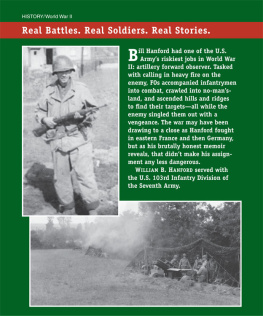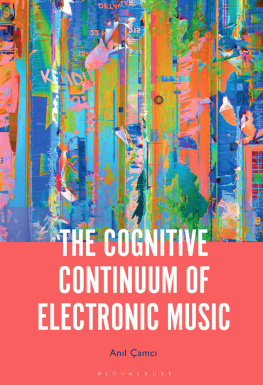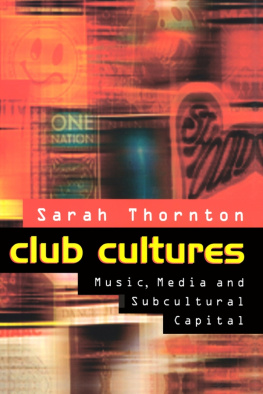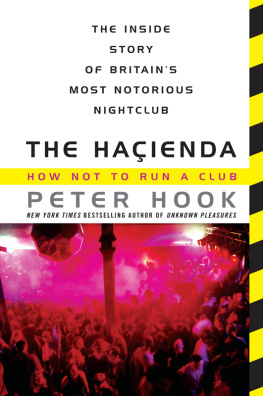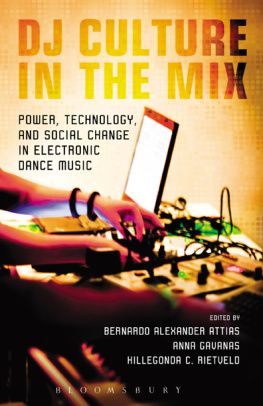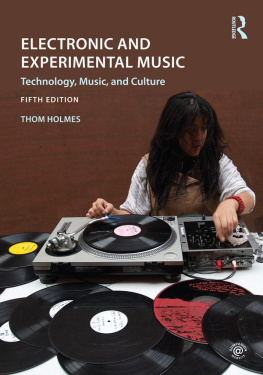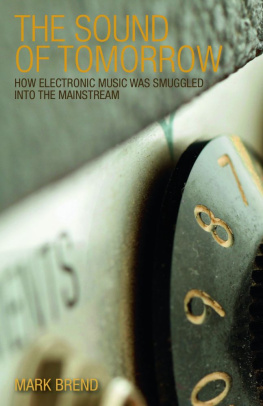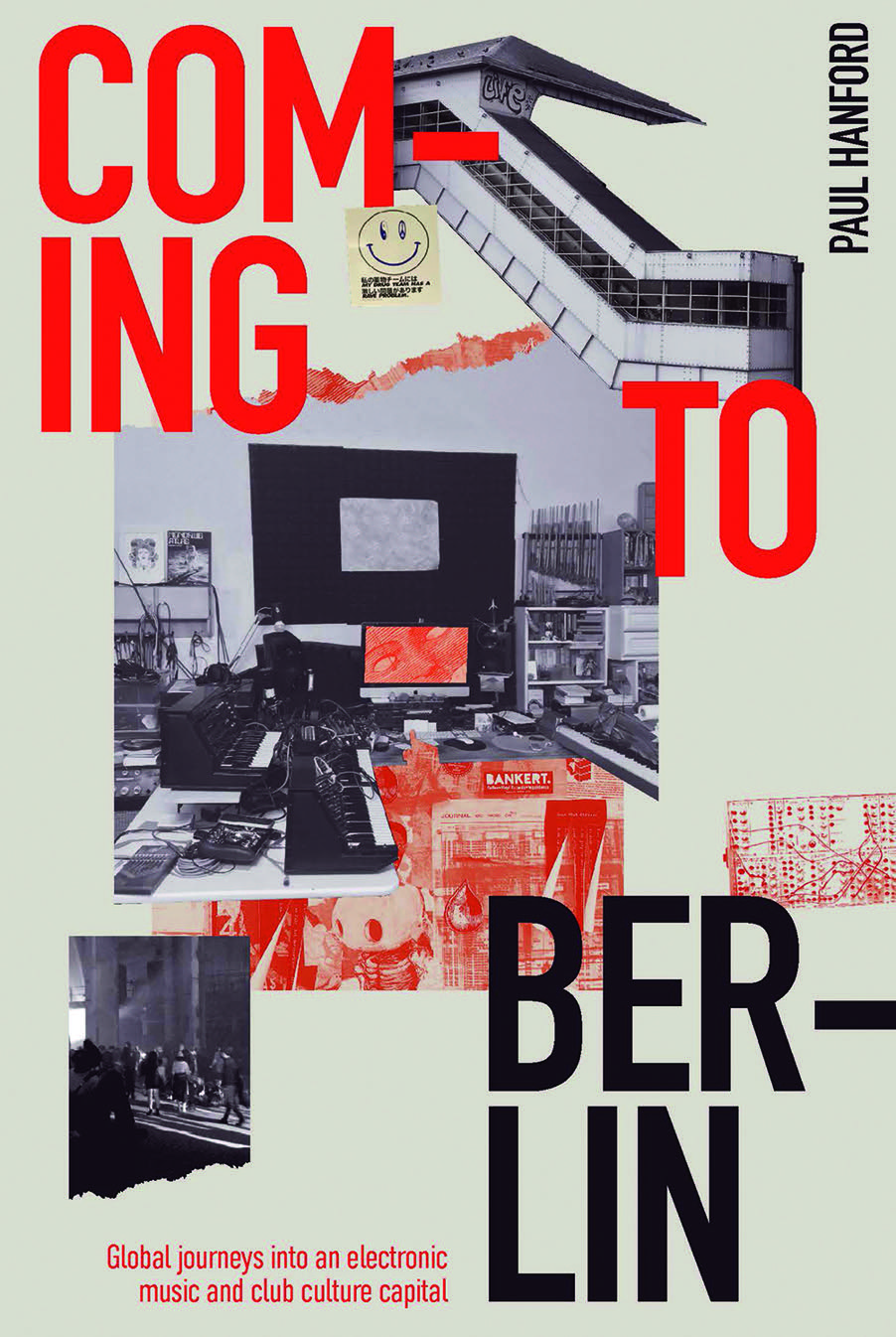About the Author
Paul Hanford is a writer, podcaster and DJ living in Berlin. He was born in Dorset, England in 1974. As a music-maker, he was part of Brothers In Sound, who released three EPs and an LP, Family Is For Sharing, on Parlophone/Regal between 19982001. He released several records as Sancho before studying Music Culture Theory at UEL. Moving to London, he spent ten years working as a music consultant, being a full-time DJ in bars and events across London, as well as presenting radio and TV on Hoxton Radio and London Live.
He moved to Berlin in 2018 with an award from the Arts Council of England and set up the Lost and Sound podcast. Publications hes written for include Wired, Huck, DJMag, Mixmag, Borshch, Beatportal, Boiler Room and Somesuch Stories.
coming
to
berlin
Global journeys into an electronic
music and club culture capital
paul hanford
First published by Velocity Press 2022
velocitypress.uk
Copyright Paul Hanford 2022
Printed and bound in Great Britain by Clays Ltd, Elcograf S.p.A.
Cover design: Hayden Russell
Cover image: Nina Richards
Typesetting: Paul Baillie-Lane (pblpublishing.co.uk)
Paul Hanford has asserted his right under the Copyright, Designs and Patents Act 1988 to be identified as the author of this work
All rights reserved. No part of this publication may be reproduced, in any form or by any means, without permission from the publisher
ISBN: 9781913231156
Acknowledgements
My biggest thanks and love to my parents. An equally huge appreciation to everyone who trusted me to share parts of their life here: Mark Reeder, Danielle DePicciotto, Farhad, Alan Oldham, Gerald Simpson, Zoe Angelina, Joseph Kamaru, Thomas Tichai, Alexandre Decoupigny, Zir, Robert Bennett, Julia Kchler, Sonia Fernndez Pan, Paul Hockenos, David Jazay, Alexander Hacke.
Thank you deeply to Colin Steven at Velocity Press for stepping up and being solid. And to friends and colleagues, some helping directly, some who may not even be aware they helped me. In no particular order: Gaby DAnnunzio, Laura Jean Marsh, Tena Strok, Ben Osborn, Tom Giddins, Kathleen and Sly, Adam and Vanessa, Markus Nikolaus, Tim Lawrence and Helen Reddington, Kian Del Valle, Ed Dowie, Emma T, Tom Haines, Dora Pan, Laura Jefcoate, Agata Smith, Emma Robertson, Fabien Riggall, Gerd Grauer, Estela Oliva, Tom Haines, Antonio Crdenas, Robert Henke, Obar Ejimiwe, Portrait XO, Dirk Molt, Russ Kemp, Tom Greatorex, Laura Little, Dream Baby Dream, No Shade, Igor Condric, Juta, Johana, the people who work at and run Tischendorf, Sankt Oberholtz, Chapter One, Cafe Mu, Leutchstoff, Laidak, The Visit, Jorgan Borg, Kerrie Robinson, Valdone Porcheddu, Marge Goymer.
If Ive forgotten you, my apologies Ill buy you a jar of pickled onions or something.
Preface
Coming To Berlin was written between August 2021 and February 2022. It was begun in a Neuklln Altbau, and then the majority was written in winter in Friedrichshain and in cafes across the city. But the first seeds came earlier when I finally moved to Berlin in 2018.
Prior, after each stay, Id return back to London with a reignited passion for electronic music and a deep sense that there is still a place in the world where outsiders are not only accepted but help define, as well as run the electricity, on a citys cultural power. Over the following few years, every time Id visit, whether I danced or not, I bathed in that feeling of acceptance, of myself and of others, and of feeling comfortable in my own skin. A sense of freedom, as punk as it is techno, as anarchic as it is ambient, kept manifesting in daily interactions, in graffiti, in places Id go, cafes, lakes, the U-Bahn, wherever.
In March 2018, grappling with my own Britishness during a time of Brexit that left me feeling alienated from a society that could decide to leave Europe, I felt it was now or never. I applied for an Arts Council grant, which to my surprise, I got. The brief? Research Berlins music culture. I moved into a WG in Friedrichshain, the first of fourteen places Ive lived in the city so far. I interviewed DJs and producers, musicians, historians, promoters and activists. The idea was that this could form a book, but instead, it became the beginning of the ongoing podcast, Lost and Sound.
For several years, the idea of writing a book about Berlins music culture stuck with me, but I was held back by imposter syndrome. Why the fuck should I, a newcomer, an Auslnder, get to write about someone elses culture? Shouldnt it be written by somebody who has been in the scene since before the Wall fell, at the very least? But then it hit me: so many creative people in Berlin are the same as me. They were, at one point, newcomers too. And this is exactly what Berlin represents to so many that have come here from all across the world: a place where we hope to express our identities. Its an island of individuality in a sea of commercialisation. The driving force behind this is way deeper than electronic music and the dancefloor, but for so many of us who were at one point new here, this is our starting point.
Coming To Berlin isnt a straightforward book about electronic music and club culture. Many of the citys big names appear only as references, cameos in the lives of the people I met. Instead, Ive written a book where music is a soundtrack to how a city can provide, or even not provide, a cultural home for artists and outsiders. Each chapter is an encounter, and its as much about the city itself as it is the amazing people I met.
This book is, in part, a plea to treat the city with respect. A lot is at stake right now; the tide of gentrification is creeping in. Rents have risen over 70% in the last decade; communities are being displaced. Plus, on the day I write this, 14 February 2022 (eerily enough, ten years to the day since I first set my foot down off that Easyjet into Flughafen Schnefeld), clubs, the citys long-running heartbeat, are only just gearing up to reopen. The absence has been felt significantly, businesses have closed, everything has been affected, and this brings me to one more thing: I decided not to hide the pandemic from the narratives.
Ive written this equally for people anywhere fascinated to learn more about electronic music culture and the dancefloor as I have for those, like myself, who live here. The book is deeply personal; to some, this book may not even seem to be about clubbing at all. This is a book about Berlin, or rather, this is a book about my version of Berlin, experienced through moments Ive shared with people youll meet over the following pages.
Paul Hanford
Berlin, 14 February 2022
1: Fresh Snow on Rigaer Strae
Introduction. Arrivals.
The first time I danced in Berlin was in a place I never knew the name of, and in the years since, I have never found where it was.

